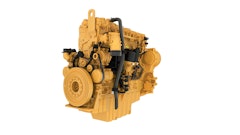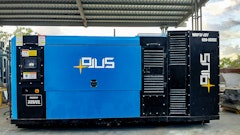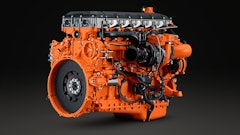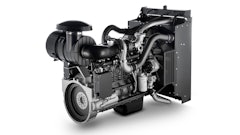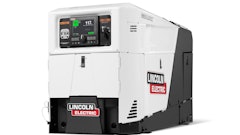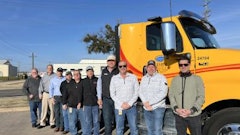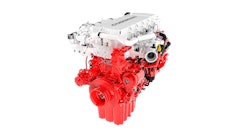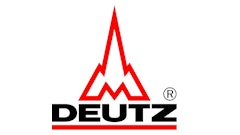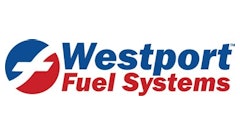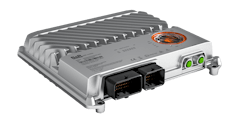

For years, Volvo Penta customers have benefited from the company’s extensive marine engine testing at its Krossholmen test center near Gothenburg, Sweden. The center helps OEMs optimize yachts and vessels installed with Volvo Penta engines.
While Volvo Penta also performs comprehensive testing on its industrial engines – both in test cells and on real-life job sites, including quarries, mines and power plants – the company recently cut the ribbon on its first dedicated industrial test center specifically for material handling applications in Gothenburg Harbor. The test center is in cooperation between Volvo Penta and Gothenburg Roro Terminal (roll-on/roll-off) and will be fully operational by December.
Full throttle
Gothenburg Roro Terminal (formerly Älvsborg Roro), a company specializing in roll-on/roll-off cargo in trailers and railroad cars, as well as automobile handling, works around the clock to move freight on and off ships or into temporary storage. The terminal handles over 10 million tons of cargo each year, primarily paper but also steel and specialized goods. Last year more than 380,000 wheeled cargo roro units passed through the port, over half of which were handled by the Gothenburg Roro Terminal. Its terminal area covers a half million square meters and encompasses seven roro berths.
Volvo Penta has been closely connected to the Gothenburg Roro Terminal for many years, with the company’s engines installed in around half of the roro terminal’s machines. And since 2010, Volvo Penta has tested Stage IV/Tier 4 Final engines in three of Gothenburg Roro Terminal’s terminal tractors. Gothenburg Roro Terminal is a convenient venue for testing because of its close proximity to Volvo Penta’s headquarters, as well as its high-volume production. Two engine field tests – in a MAFI MT 32 and MAFI MT 45 – are still ongoing. The MT 32 is installed with a Volvo Penta 8-liter engine and can haul up to 35 tonnes in its trailer, while the MT 45, equipped with a D11, can carry up to 95 tonnes of SECU (Stora Enso cargo unit) boxes.
“Volvo Penta can do a test on the road, but it’s not the same as in here – our machines are always going at full throttle, moving up and down boat ramps, and carrying heavy loads,” says Göran Dittmer, Technical Engineer at the Gothenburg Roro Terminal. “Volvo Penta gets good data from us.”
With the designation of the Gothenburg Roro Terminal as an official test center, however, Volvo Penta can take testing a step further. Later in the year, the company will put several of its own Volvo Penta-equipped machines into the hands of Gothenburg Roro Terminal. The arrangement benefits the port with the use of several new terminal tractors while allowing Volvo Penta to conduct even more detailed testing – and better pinpoint and adapt its engines to the needs and demands of a busy roro terminal. Volvo Penta is also aiming to have its engines in a straddle carrier and reach stacker at the port, allowing it to test engine behavior in a variety of machines.
The new Volvo-owned machines will work in the port as usual, but they will also be available for application testing in Gothenburg Roro Terminal’s shop. “We can access our own machines more freely,” says Mario Celegin, one of Volvo Penta’s engine development testing managers. “It’s hard for us to do application testing on their machines when they work as many as 200 hours a month. This new arrangement also allows us to test our machines in real conditions without having to invest in a site of our own.”
Besides testing fuel consumption, Volvo Penta can also look closely at emissions, engine quality, fault codes, serviceability and driver experience. It can also test upcoming features, software updates and accessories and make any necessary modifications during the testing process. The company can also use the facility for marketing activities, training and seminars.
“Developing products and services in close collaboration with users of our products is a great way to make sure what we offer is fit for purpose and stands out from the competition,” says Johan Carlsson, Volvo Penta’s Senior Vice President of Planning, Product Development and Purchasing, who officiated at the ribbon cutting ceremony. “We really appreciate this opportunity to work with Gothenburg Roro Terminal.”



